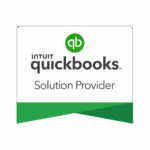Many small business owners underestimate the importance of sound bookkeeping practices, which can lead to costly errors down the line. Inaccurate record-keeping, failure to reconcile accounts, and mixing personal and business expenses are just a few common mistakes that can wreak havoc on your finances. In this blog post, we will highlight some of the most costly errors in bookkeeping and provide tips on how to avoid them to ensure your business’s financial health and success.
Common Bookkeeping Mistakes to Avoid
Failing to Track Small Transactions
Forgetting to track small transactions may seem insignificant, but they can add up and cause discrepancies in your financial records. Whether it’s a cup of coffee or a small office supply purchase, every transaction should be recorded to ensure accuracy in your bookkeeping process. To maintain a clear financial picture, implement a system to track all expenses, no matter how small.
Overlooking Reconciliation
To avoid errors in your bookkeeping, it’s crucial not to overlook the reconciliation process. Reconciling your accounts ensures that your records align with your bank statements and identifies any discrepancies that must be resolved. Failure to reconcile can lead to missed transactions, overdrafts, and inaccurate financial reporting.
Understanding the importance of reconciliation can not be overstated. Without this step, your financial records may contain errors that could go unnoticed until they become larger issues. Regular reconciliation helps to catch mistakes early, ensuring the accuracy and integrity of your bookkeeping system.
Avoiding Misclassification and Improper Journal Entries
The Consequences of Misclassifying Expenses and Income
Expenses and income are the backbone of your bookkeeping records. Misclassifying expenses and income can lead to inaccurate financial statements, resulting in poor business decisions. For instance, if you incorrectly categorize a business expense as personal, you may pay more taxes than necessary or misjudge your company’s profitability.
The Risks of Inaccurate Journal Entries
On the other hand, inaccurate journal entries can throw off the entire balance of your accounts. This can lead to discrepancies in your financial reports, making it challenging to understand your business’s true financial health. Improper journal entries can also result in issues during audits or when seeking funding from investors or lenders.
Understanding the importance of accurate classifications and journal entries is crucial for maintaining the integrity of your bookkeeping system. By implementing proper categorization techniques and double-checking all entries for accuracy, you can avoid costly errors that could have long-term repercussions for your business.
The Perils of Ignoring Tax Obligations
Consequences of Late or Incorrect Tax Filings
With tax season upon us, it’s crucial for businesses to understand the severe consequences of late or incorrect tax filings. Failing to meet tax deadlines or submitting inaccurate information can lead to hefty fines, penalties, and even legal actions by tax authorities. These mistakes can significantly harm your business’s financial health and credibility, jeopardizing its sustainability in the long run.
Tips for Tax Compliance in Bookkeeping
Late submissions and errors in tax filings can be easily avoided with proper tax compliance strategies in bookkeeping. Here are some imperative tips to help your business stay on top of its tax obligations:
- Keep detailed records of all financial transactions and expenses.
- Set reminders for important tax deadlines to ensure timely submissions.
- Regularly reconcile your accounts to spot any discrepancies early on.
Implementing these tips diligently will not only help you meet your tax obligations efficiently but also safeguard your business from potential financial risks and legal troubles in the future.
Technology and Bookkeeping: A Double-Edged Sword
Embracing Automation Wisely
Automation in bookkeeping can streamline processes, save time, and reduce human errors. By implementing software that automates routine tasks like data entry and reconciliation, you can focus on more strategic aspects of your business. However, it’s necessary to remember that automation is a tool to enhance your bookkeeping, not replace human oversight entirely.
Avoiding Overreliance on Bookkeeping Software
Conversely, overreliance on bookkeeping software can lead to complacency and critical errors going unnoticed. Relying solely on automated processes without regular manual checks can result in inaccurate financial records. Maintaining a balance between computerized solutions and manual review is crucial to ensure the accuracy and integrity of your bookkeeping.
Understanding the limitations of bookkeeping software is key to avoiding costly mistakes. While automation can streamline processes and increase efficiency, human oversight is irreplaceable when it comes to identifying discrepancies and ensuring the accuracy of financial data. By embracing automation wisely and exercising caution in overreliance on software, you can harness the power of technology to improve your bookkeeping practices without falling victim to its pitfalls.
Save Time & Money Avoiding Common Bookkeeping Errors
To wrap up, bookkeeping errors can have serious consequences for your business, leading to financial mismanagement, compliance issues, and even legal troubles. By avoiding common mistakes such as neglecting data entry, failing to reconcile accounts, overlooking receipts, and not keeping detailed records, you can ensure the accuracy and reliability of your financial information. Implementing proper bookkeeping practices and utilizing technology can help you streamline your processes, save time, and make informed decisions to drive your business’s success.







